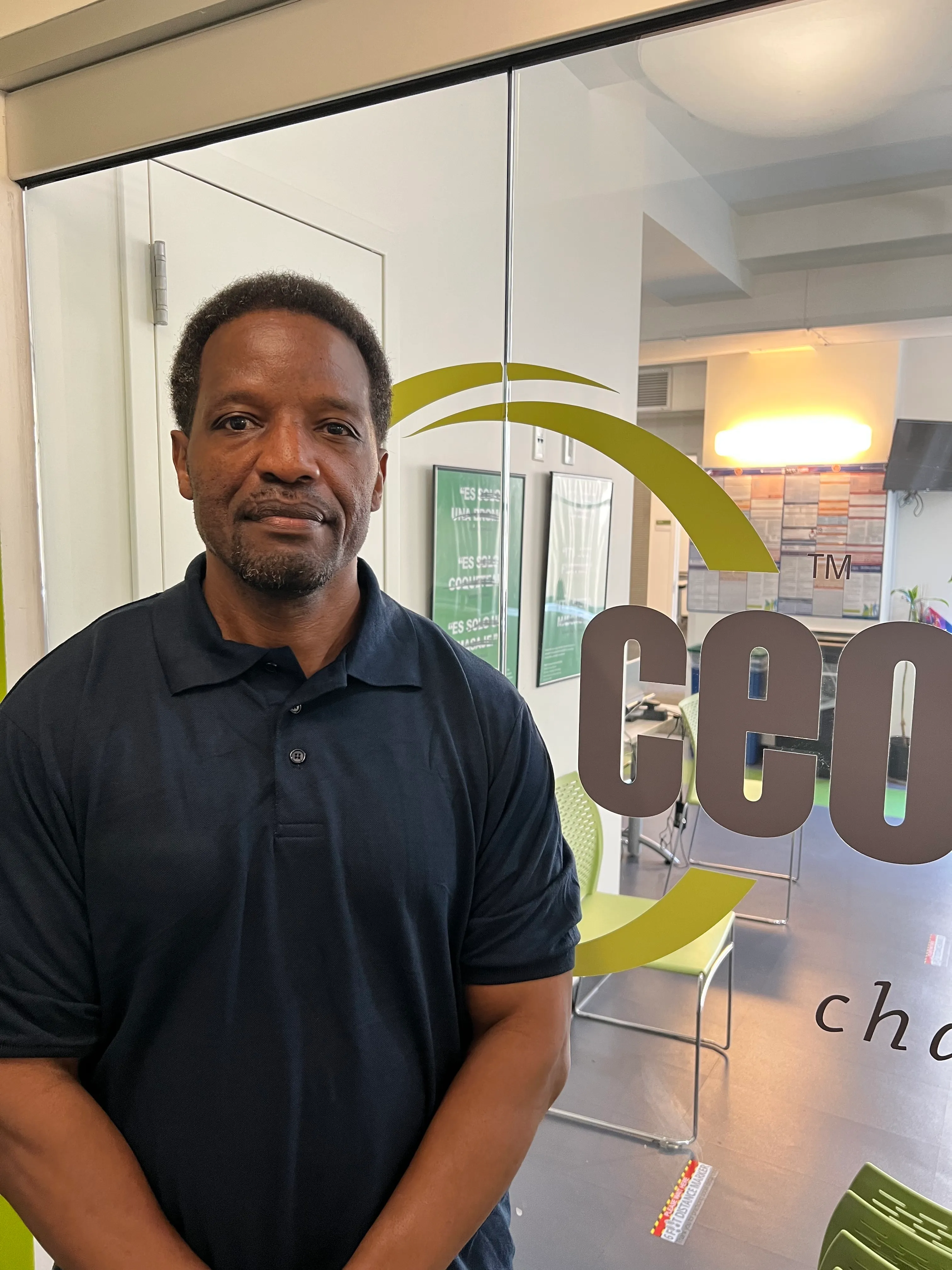Like many young graduates, Quincy wasn’t sure where life would take him after school, but he knew he wanted to work in criminal justice reform. Growing up, he had older siblings impacted by the criminal justice system. He says that had a big effect on his family and led him to major in criminal justice at Western Michigan University in Kalamazoo, Mich. Now, just a few years later, he has been promoted to regional social enterprise manager for the Center for Employment Opportunities’ Midwest region.
Quincy’s journey with the Center for Employment Opportunities (CEO), a national nonprofit that provides employment services to people returning home from prison or jail, began in 2019 when he got a job as a site supervisor for their Detroit location.
Quincy says he was nervous when he first started his position as a site supervisor. “Not because of the type of people,” he says, “but more so the age gap.” He was 23 and had just come out of college, whereas many of the participants he supervised were in their 40s and 50s. “I didn’t know what to expect–or how they would receive me.”
Luckily, the transition went well. The person whose position he was filling took the time to train Quincy and vouched for him to the crew. Quincy believes this set him up for success, as did the support and mentorship he received from his coworkers.
Quincy jumped right into the role. “I found myself researching more than I ever did in school,” he says. “How do I fix this, how do I do this? I learned a lot about people, and about the business behind it all.”
Now, with years of experience behind him, Quincy is confident in his new role managing about fifteen site supervisors and numerous partnerships throughout the region. He says his passion for the work has also remained strong during his tenure at CEO. “I have a purpose. I don’t want to just go to work and go home; I want to really do something.”
He has big goals in this new position, including finding more career training opportunities for participants. He says that the transitional jobs participants usually do now, such as litter abatement and groundskeeping, are helpful roles but are “jobs, not careers.”
“I feel that to reduce recidivism, they need careers,” Quincy says. “Right now, we offer CDL [Commercial Drivers License] training–that’s a skilled trade. Those are the types of things I want to encourage.
“If more participants were working toward a skilled trade–like carpentry, welding, or mechanics–that would set a career path, not just a job. No one can take that knowledge away once you have it.”
Quincy knows it will take a lot of work to build those pathways, but he believes he can do it. “I know that through the relationships I build and the people I meet, someone will hear me, and it will work out.”
Quincy loves working as a part of CEO and looks forward to continuing in his role. “I enjoy the teams we’ve built–I’m very people-oriented. My dad always told me I never met a stranger,” he says.
“I’m excited to develop new relationships and new partnerships. And to keep changing lives.”




